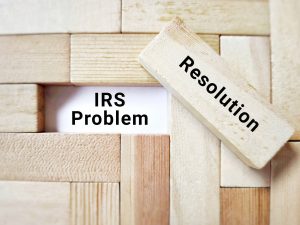IRS destroyed 30M paper information returns due to backlog
 The Internal Revenue Service destroyed an estimated 30 million paper-filed information return documents in March 2021 because of its inability to process its backlog of paper tax returns, according to a report by the Treasury Inspector General for Tax Administration.
The Internal Revenue Service destroyed an estimated 30 million paper-filed information return documents in March 2021 because of its inability to process its backlog of paper tax returns, according to a report by the Treasury Inspector General for Tax Administration.
The report, released May 4th, noted that the IRS typically uses information return documents for post-processing compliance matches to identify taxpayers who don’t accurately report their income. The report focuses on how the IRS should be doing more to encourage electronic filing of business tax returns and reduce paper filing. TIGTA reported that, while e-filing of business tax returns has continued to increase, the e-filing rate still lags behind that of individual tax returns.
“Repeated efforts to modernize paper tax return processing have been unsuccessful,” said the report.
During the pandemic, millions of paper tax returns and other documents accumulated at IRS facilities and the agency has been working overtime to catch up on the backlog. Another recent TIGTA report noted that more than 16.4 million individual tax returns, transactions and Accounts Management cases remained in inventory as of the end of 2021. During a Senate oversight hearing last week, IRS Commissioner Chuck Rettig testified that the number of unprocessed tax returns from 2021, as of April 21, had been reduced to 1.8 million (read more here).
The IRS continues to receive large volumes of paper-filed tax and information returns, leading to significant costs to process them every year, according to the new TIGTA report. In fiscal year 2020, the IRS spent more than $226 million on processing paper-filed tax returns.
The report acknowledged that the IRS has taken a number of actions and developed initiatives to increase e-filing. On top of that, legislative requirements have resulted and will continue to lead to increases in e-filing. But TIGTA believes the IRS needs an overall strategy.
“The backlogs of paper tax and information returns to be processed along with the inability to ship paper tax returns and/or retrieve paper tax returns from Federal Records Centers due to the pandemic demonstrate the need for the IRS to develop a Service-wide strategy to further increase e-filing,” said the report. “However, the IRS does not have a Service-wide strategy that identifies, prioritizes and provides a timeline for the addition of tax forms for e-filing nor an accurate and comprehensive list of tax forms not available to e-file.”
The problems led to the wholesale destruction of millions of information returns. The report does not explain exactly why the IRS destroyed millions of information returns, but it seems to be part of an effort to expedite the processing of the backlogged business tax returns.
“This audit was initiated because the IRS’s continued inability to process backlogs of paper-filed tax returns contributed to management’s decision to destroy an estimated 30 million paper-filed information return documents in March 2021,” said the report. “The IRS uses these documents to conduct post-processing compliance matches to identify taxpayers who do not accurately report their income.”
The documents help the IRS’s Automated Underreporter Program identify taxpayers who are not accurately reporting their income, but IRS officials told TIGTA that once the tax year ends, the information returns, such as Forms 1099-MISC, Miscellaneous Information, can no longer be processed due to system limitations. That's because the system used to process the information returns is taken offline for programming updates in preparation for the following filing season.
Since 2014, the overall percentage of business tax returns e-filed has increased from 41% to 63%. Employment tax returns continue to provide the most significant opportunity for growth in business e-filing, TIGTA noted. The IRS has yet to establish processes and procedures to identify and address corporate, employer and Heavy Highway Vehicle Use Tax filers that do not comply with e-file mandates. TIGTA’s analysis of tax return filings identified 15,108 filers that paper-filed 22,569 tax year 2018 returns that were required to be e-filed. TIGTA estimates that the processing of these returns cost the IRS $30,196 in comparison to the $3,405 to process the required e-filed tax returns.
TIGTA recommended the IRS develop a Service-wide strategy to prioritize and incorporate all forms for e-filing; develop processes and procedures to identify and address potentially non-compliant corporate filers; and develop processes and procedures to ensure that penalties are consistently assessed against business filers that are non-compliant with e-filing requirements.
The IRS agreed with the first recommendation to develop a Service-wide strategy to incorporate all forms for e-filing, but didn’t agree with the report’s other two recommendations. IRS officials said they didn’t need to develop processes and procedures to identify non-compliant corporate filers because all requirements needed to assess penalties are not known at the time of filing.
The IRS also has systemic processes in place for e-filed partnership returns, which were found to be working as intended. Other types of business returns have differing criteria for e-filing requirements and exceptions to the requirements, which prevent the implementation of a standard process for all business filers.
TIGTA, for its part, said it believes that IRS management’s justification for taking no action on two recommendations is insufficient. “In view of the backlogs of paper tax returns, the IRS should take additional steps in an effort to continue to reduce paper return filings,” said the report.
The IRS pointed out that it’s facing a tight budget but is continuing to pursue more ways to encourage e-filing of various types of business tax returns. “Constrained funding is the foremost obstacle we face in implementing our modernization strategies,” said Kenneth Corbin, commissioner of the IRS’s Wage and Investment Division, in response to the report. “In 2015, we developed business tax return strategies for the employment tax family of returns (forms 94x), Form 990, Return of Organization Exempt from Income Tax, and Form 2290, Heavy Highway Vehicle Use Tax Return. Each of the strategies provided a framework of opportunities to increase the business return e-file rates.”
7 Reasons to Work with a Tax Resolution Professional To Resolve Your Back Taxes
 When you owe money to the IRS, it is hard to think about anything else. While being in debt is never fun, no matter who the creditor is, the IRS enjoys almost unlimited power to collect the money they are due.
When you owe money to the IRS, it is hard to think about anything else. While being in debt is never fun, no matter who the creditor is, the IRS enjoys almost unlimited power to collect the money they are due.
Unlike your mortgage lender or credit card company, the Internal Revenue Service has the power to attach your wages, raid your bank account and even take your freedom. No other creditor even comes close in terms of its power and influence, and taking on the agency on your own could be asking for trouble.
If you have received a notice from the IRS, you need to act fast, and you need the right assistance in your corner. Taking on the IRS requires specific expertise, and that is why it is so important to work with a quality tax resolution company. Here are seven reasons why working with a tax resolution specialist could save your good name - and your bank account.
- You gain specific expertise. The IRS is a specialized agency, and you need expert advice and guidance to get the most positive resolution.
- It will give you peace of mind. Just being contacted by the IRS can make your heart beat a bit faster, but working with a tax resolution expert can set your mind at ease once you hire a tax resolution specialist. Generally, once you hire a tax resolution expert you won’t have to meet or speak with the IRS. They will handle all communications and correspondence with the IRS.
- The tax resolution process could save you a lot of money. Tax resolution professionals are experts at settlements, and working with one could save you a ton of money.
- Timely action could save your home and property. If you wait too long, you could put your home, business, bank accounts and personal property at risk. Time is of the essence when it comes to resolving tax issues, and timely assistance could make a world of difference.
- You will feel less alone. Few things feel as lonely as fighting the IRS on your own. When you work with a tax resolution expert, not only do you not have to go it alone but they actually step into your shoes to represent your best interests.
- You will have a chance to file missing returns. When faced with a big tax bill, it is easy to do nothing, but failing to file legally required tax returns could have serious consequences down the line. If you have years of unfiled returns, a tax resolution expert can help you catch up.
- You could save your credit score. Unresolved issues with the IRS will reflect badly on your credit report, lowering your credit score and making it harder to borrow money or qualify for a mortgage. Timely tax resolution could preserve your stellar credit score and help you avoid those serious consequences.
Owing money to the IRS can be pretty frightening. There is a reason those three letters strike so much fear into the hearts of ordinary citizens, even those who have done nothing wrong.
If you are in trouble with the IRS, you cannot afford to ignore the issue, so act fast and get the help you need today. Working with a tax resolution expert carries a host of benefits, starting with the nine outlined above.
Most likely, you wouldn’t go to court without a lawyer. Similarly, it’s best not to deal with the IRS without expert representation which can be provided by a tax resolution expert, who by training, is also a CPA, attorney or enrolled agent.
Reach out to our firm and we’ll schedule a no-obligation confidential consultation to explain your options in full to permanently resolve your tax problem. www.heritagetaxcompany.com
Do You Owe Back Taxes? Why You Should Stop Panicking & Start Planning
If you owe back taxes to the IRS, some amount of panic is understandable. After all, the Internal Revenue Service has the power of the federal government in its corner, something no other debt collector can claim. They are considered the most brutal collection agency on the planet.
It is easy to freeze up and just do nothing when you owe back taxes to the IRS, but hiding from, or doing nothing about your tax debt will not make it go away. In fact, ignoring the taxes you owe will only make the situation worse, since interest and penalties can really add up. You also risk having your paycheck garnished (the IRS does not need a court order to do this) or your bank account levied. The IRS can also file a Notice of
Federal Tax Lien making it all but impossible to obtain financing for a car or home.
So instead of panicking about your tax debt and hoping the problem will go away, you need to take some proactive steps. Now is not the time to panic and hide - now is the time to start taking action.
Some of these steps you can do on your own if you’d like, while others will likely require the intervention of an experienced tax resolution expert. Here are some proactive steps you can take to get a handle on your tax debt. If you need help resolving your IRS tax problem, contact us here. We help people with IRS problems every day.
Confirm the Amount Owed
When you owe back taxes, one of the first things you should do is make sure you really owe the money. The IRS has been known to make mistakes, a lot of mistakes, and the agency is far from foolproof. Contact the IRS or have us do an IRS transcript analysis to determine the amount the IRS claims you owe.
Seek Out Deductions You May Have Missed
At the very least, you may not owe as much as you think you do, and every dollar you can remove from the bill is one more dollar in your favor. Now is the time to scour your past and current tax returns, looking for deductions and tax credits you might have missed.
Unless you are a seasoned tax expert, you will probably need some professional assistance to make this happen. If you are already working with a CPA or tax expert, you can ask them to look at your past tax returns but only a tax resolution expert, who helps people like you for a living, can protect your income and assets as you go through the process.
If you missed a few deductions and tax credits along the way, your tax professional can file amended returns on your behalf, lowering the amount of tax debt you owe - and possibly eliminating it altogether. However, you usually can’t go back more than 3 years to amend returns.
Look for Special Programs You May Qualify For
The bad news is the IRS wants its money and has the power to collect it.
The good news is the tax agency also offers several programs tax filers can use to make the repayment process easier. In some cases, the IRS may even be willing to settle for less, possibly much less, than the total amount of back taxes you owe.
These programs are not available to everyone, and if you have the resources needed to pay your back taxes, the IRS is unlikely to give you much of a break. But if your resources are limited, the tax agency may decide that a small amount of tax repayment is better than none at all.
The first step in the process is finding the programs for which you might qualify, and that will probably require the help of an experienced tax resolution expert. Most CPAs do not have this experience. Negotiating with the IRS is not an easy thing to do, and you may need help to drive the best bargain and reduce your back taxes. In the end, it may be well worth paying a tax relief expert to negotiate on your behalf, especially if you end up with a much lower tax bill.
It is easy to panic when you owe back taxes, but you should not let fear get in your way. The longer you ignore the problem, the worse it is likely to get, and the sooner you act, the better off you, and your finances, will be. There is a solution to every IRS problem. Let us see what IRS tax debt settlement programs you qualify for today. www.heritagetaxcompany.com

